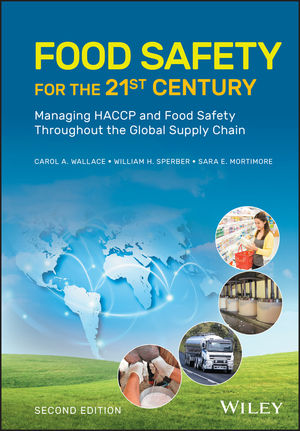Navigating a food safety crisis: Building trust through transparency

No one is immune from a food safety crisis and its ripple effects on consumers, stakeholders and hard-earned reputations. No matter what the crisis, the key is being prepared and communicating effectively, which can be the deciding factor between the outcome being a devastating blow or a minor setback.
But, it’s not just about having a thorough crisis communications plan in place with periodic dress rehearsals.
While that is vital, successfully navigating a food safety crisis includes establishing trust long before crisis strikes, so consumers know you as reputable, ethical and credible.
Trust allows you to more successfully weather the storm and rebuild, and consumer research from The Center for Food Integrity (CFI), Gladstone, Mo., shows that transparency is key to earning trust.
Transparency is particularly important at a time when consumers no longer trust “big food,” in part because when a food safety crisis strikes, its ripple effects are felt far and wide. And, there’s nothing quite as personal as the food we consume and feed our families.
Whether comparing local food companies to national food companies or small farms to large farms, the results are the same—a significant percentage of the public (in some cases a majority) feel smaller companies and farms are more likely to share their values. Big food is susceptible to growing public perception that profit is being placed ahead of public interest. When this perception collides with a triggering event, such as a food recall, social outrage expressed by consumers can have profound effects.
Transparency helps overcome this “big is bad” bias.
So, how can the food industry be more transparent? The research points to specific actions that matter to consumers.
First, consumers want to see a company’s practices – demonstrating through videos, blogs, advertising and promotion how you ensure food safety and sustainability and care for your animals, employees and community, for example. In other words, it’s not just what you say you do; it’s what you’re actually doing that moves the needle.
Why are practices important? Because practices are an illustration of a company’s values in action – and values build trust.
The new Veal Farm website, for example, includes a prominent link at both the top and bottom of its home page to information about the Veal Quality Assurance program in which it participates, showcasing the program’s high standards and history.
If it applies, feature third-party verification or audit information in your outreach. CFI research shows it’s particularly important when it comes to the issue of food safety.
Third-party verification demonstrates that you’re actually following through with your practices. The research shows the consumers feel a higher level of comfort knowing that a credible, objective third-party confirms your practices.
Finally, consumers also want the ability to engage, be heard and acknowledged and get their questions answered promptly and in easy-to-understand language, according to the research.
If a consumer has to click several times to get to important information on your website, for example, if it’s too complex or if you fail to respond to consumer questions quickly, you’re falling short of their expectations.
In other words, if consumers can’t easily access the information they’re looking for in language they understand, it may appear that either you don’t have a positive story to tell or you have something to hide.
Campbell Soup Co.’s transparency initiatives include creating a forum for an open and honest dialogue with consumers – in addition to listing every product it makes globally within three years, so consumers know what’s in its products, why certain ingredients are used, where they’re sourced and what’s in the packaging.
Consumers simply want balanced, credible information, so they can make informed choices. Especially in times of crisis, consumers want information and they want it quickly from someone they know and can trust. They expect food processors to be honest – disclosing the good, the bad and the ugly to show that you understand their concerns, whatever the crisis, and are acting ethically.
If you’ve laid the groundwork by implementing transparency strategies consistently and long before crisis strikes, you’ve already established credibility with the public. As a result, they are more likely to trust you to make decisions in times of crisis that are in their best interest – and you’re more likely to recover from a crisis with your reputation intact.
Looking for a reprint of this article?
From high-res PDFs to custom plaques, order your copy today!









